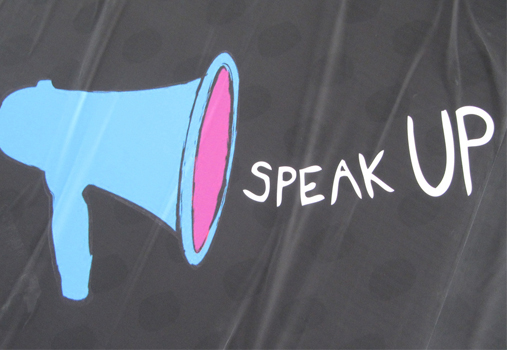What does it mean to be a self-advocate?
By David Lynch
The biography at the bottom of this blog post indicates that I am a self-advocate. Many of you may be wondering what it means to be a self-advocate.
Human Services Research Institute (HSRI), whose mission is to enrich and improve lives of persons and families experiencing disabilities, suggests self-advocates are people who are empowered to speak up for themselves and others about life decisions without the control of others (Human Services Research Institute, 2015). An article about self-advocacy on the Disability Scoop website suggests that self-advocacy is the idea of asserting yourself in everyday decisions (Diament, 2009).
Each day I have many opportunities to be a self-advocate for myself and others. Some decisions for myself are simple, such as deciding what to eat or the activities to participate in. Other decisions require more thought, such as preparing a health directive for future health treatments. Many times I see opportunities to self-advocate to help make the world better for persons experiencing disabilities. I recently reached out to my state representative to discuss paratransit issues concerning increased prices and how they will affect the limited finances of persons with disabilities. I also contacted the dentist’s office I visit to let them know that the access ramp has gone into disrepair and is a safety issue. I even asked other people to contact them to get this addressed before someone gets hurt.
When I was younger I did not receive any guidance on how to become a self-advocate. I just started to speak up for myself and others. Today, I want to do whatever I can to encourage and guide young people on how to become effective self-advocates. Indeed, the Disability Scoop article on self-advocacy suggests it is important for young people transitioning to adulthood to have guidance and role models to give them the tools to be effective advocates (Diament, 2009).
There are many resources available to help young people become effective self-advocates. Some of them are available through the Center for Disabilities Studies (Full disclosure: I sit on the executive committee of CDS’s Community Advisory Council.) The 2012 summer newsletter delAware, produced by CDS, provides insights on the importance of helping young people become self-advocates. CDS also assists young people in becoming self-advocates with Transition Education Employment Model (TEEM), which helps young people prepare to enter the workforce, take on further education, and participate in the community. I recently heard about PEERS, a curriculum utilized by CDS to provide materials and training to local schools, which in turn helps young people with the tools necessary to help them interact with others. Finally, Junior Partners in Policymaking, sponsored by the Delaware Developmental Disabilities Council, helps students develop leadership and self-advocacy.
Each one of us self-advocates when we speak up for our own hopes and dreams, our families, our political and religious beliefs, our favorite charities. Today, become a self-advocate. Make your voice heard and you’ll bring about positive change in your life, the community, and the world around us.



Comments